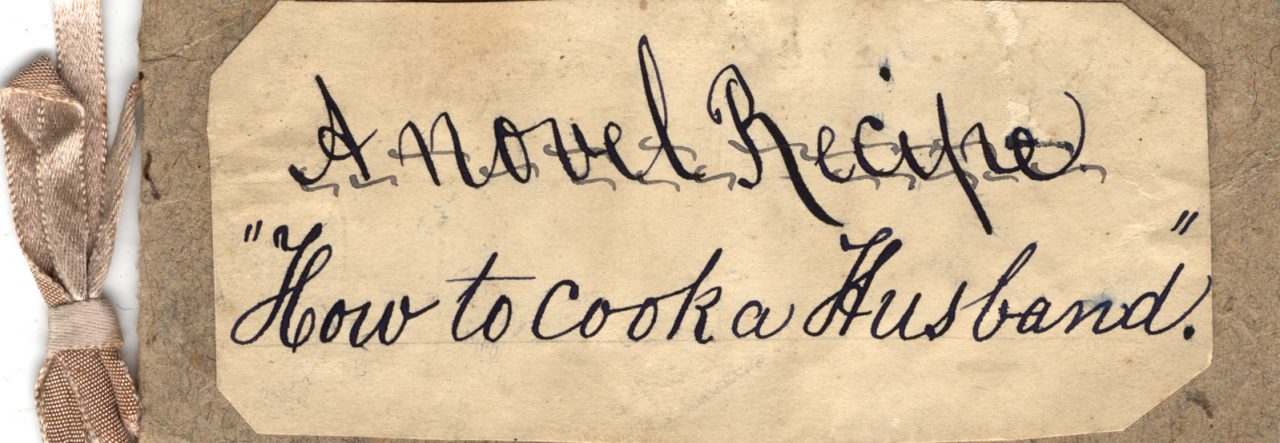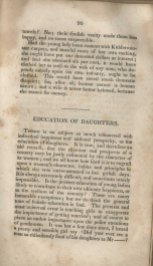In our last episode (aka, Women’s History Month, Part 14), we looked at the Eliza Leslie, cookbook and fiction writer. This week, we’re picking up with that trend. Eliza Leslie was not the only cookbook author who wrote in multiple genres and who started in a different format first. This week, we’re featuring Lydia Maria Francis Child (1802-1880). She started out writing history, moved into household management/cooking, and then expanded even further, producing stories, poetry, novels, abolitionist tracts, and materials for children. Both during her life and after her death, her letters were also published. The volume of writing she produced goes well beyond the bibliography of books available here (see below).
While I won’t make any attempt to reproduce her entire life here (I’ve included links to some biographical resources below), there are some interesting things to point out about Lydia Maria Francis Child, including some interesting ties to food. Her father, David, was a baker. After her mother’s death, she lived with her sister and was educated to be a teacher, a profession she took up by 1821 in Massachusetts (where she met the Transcendentalist movement). Her first novel was published in 1824–she was 22. In 1828, she marred David Lee Child, a lawyer who, among other things, introduced her to issues surrounding Native American rights and abolitionism. Lydia’s writing continued extensively to support the couple, especially when David launched an unsuccessful attempt at sugar beet farming. His motives were true (producing an alternative to slave-produced sugarcane), but his efforts did not pay off. In the 1840s, Lydia also tried her hand at editing, working for an abolitionist paper for a short time. Although this didn’t last long, it failed to diminish her passion for the issue, which became the focus of her activities and writings during and after the Civil War. She died in 1880, having produced volumes of stories, household advice, reform tracts, poems, and essays.
Bibliography of Lydia Maria Child publications at Virginia Tech University Libraries (items in bold are in Special Collections):
- Hobomok: a tale of early times. Boston: Cummings, Hilliard, 1824.
- The rebels, or, Boston before the revolution. Boston: Cummings, Hilliard, 1825.
- The frugal housewife: dedicated to those who are not ashamed of economy. Boston: Carter & Hendee, 1830.
- The coronal: a collection of miscellaneous pieces, written at various times. Boston: Carter and Hendee, 1832.
- Philothea: a romance. Boston: Otis, Broaders; New York: George Dearborn, 1836.
- Anti-slavery catechism. Newburyport: C. Whipple, 1839.
- Letters from New York. New York: Charles S. Francis ; Boston: James Munroe, 1843. (Also, two editions from 1845.)
- The American frugal housewife: dedicated to those who are not ashamed of economy. New York: S. S. & W. Wood, 1844, c1835.
- Correspondence between Lydia Maria Child, and Gov. Wise and Mrs. Mason, of Virginia. Boston: The American Anti-slavery Society, 1860. New York: S. S. & W. Wood, 1844.
- The mother’s book. 6th ed., with corrections and additions by the author. New York, C.S. Francis, Boston, J.H. Francis, 1844. (Also, 1987 reprint of 1831 edition.)
- Fact and fiction: a collection of stories. New York: C.S. Francis ; Boston: J.H. Francis, 1846.
- Isaac T. Hopper: a true life. Boston, J.P. Jewett & Co.; Cleveland, O., Jewett, Proctor & Worthington; [etc., etc.] 1853.
- The duty of disobedience to the Fugitive Slave Act: an appeal to the legislators of Massachusetts. Boston: Published by the American Anti-slavery Society, 1860.
- Jacobs, Harriet A. Incidents in the life of a slave girl. Written by herself … Ed. by L. Maria Child. Boston, Pub. for the Author, 1861. (Also, 1987 reprint.)
- A romance of the republic. Lexington, Ky.: University Press of Kentucky, [1997], c1867.
- Looking toward sunset. From sources old and new, original and selected. Boston, Houghton, Mifflin and Co., 1883.
- Letters of Lydia Maria Child. New York, Arno Press, 1969.
- Right way the safe way, proved by emancipation in the British West Indies, and elsewhere. New York, Negro Universities Press [1969]. (Reprint of 1831 edition.)
- The American frugal housewife. Edited and with an introd. by Alice M. Geffen. New York, Harper & Row [1972]
- Lydia Maria Child, selected letters, 1817-1880. Amherst: University of Massachusetts Press, 1982.
- Hobomok and other writings on Indians. New Brunswick, N.J.: Rutgers University Press, c1986.
- Over the river and through the wood. Boston: Little, Brown, c1989.
- An appeal in favor of that class of Americans called Africans. Amherst: University of Massachusetts Press, c1996.
- The frugal housewife: dedicated to those who are not ashamed of economy. Kansas City: Andrews McMeel Publishing, LLC, 2013.
If you’d like read more about Lydia Maria Child, we referred to the American National Biography Online, but you can also find additional biographies from the National Women’s History Museum, the Poetry Foundation, and the National Abolition Hall of Fame and Museum. There’s also a print biography of her, The First Woman in the Republic: A Cultural Biography of Lydia Maria Child (1994) that is available in Newman Library.
On a food related note, be sure to check out the latest post on our “In Special Collections @Virginia Tech” blog. In honor of March 17th, it’s all about St. Patrick’s Day dining! And come back next week, when we’ll talk about Hannah Glasse.














I thought I would alert you to an incorrect word at the beginning of this fascinating story:
After her mother’s death, she lived with her sister and was education to be a teacher
Thanks, it’s been fixed! -Kira
Pingback: Women’s History Month, Part 17: Susannah Carter (fl.1765) | What's Cookin' @ Special Collections?!